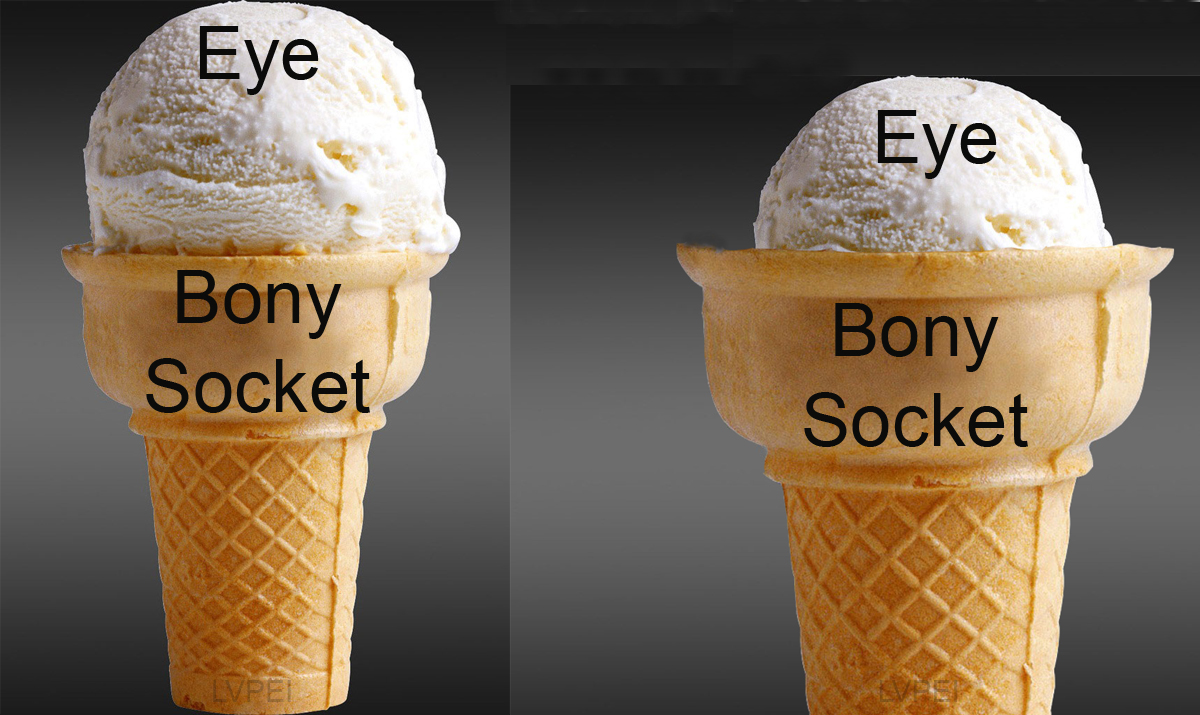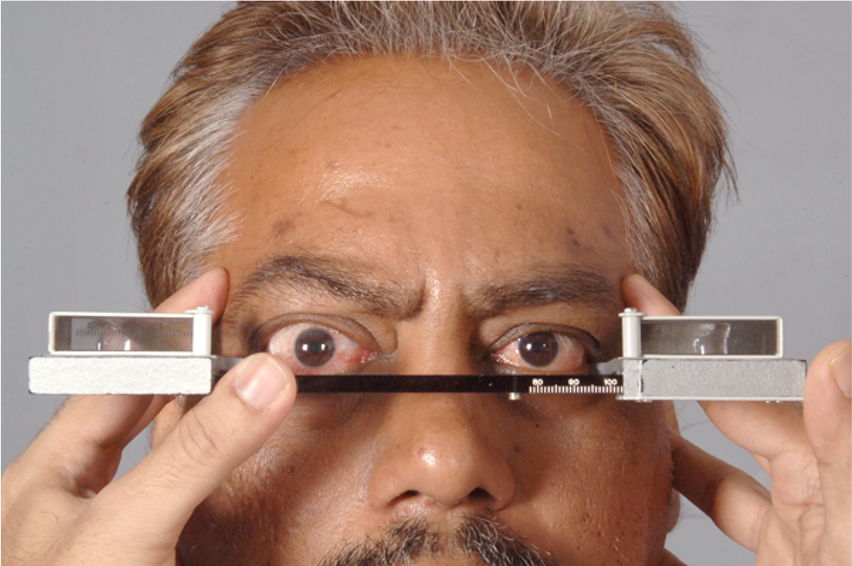What is Orbital decompression?  Orbital decompression is a highly specialized surgery where the bone of the eye socket is expanded to allow the eye to relax back. Imagine your eyeball socket as the ice-cream cone, and your eyeball as the ice-cream scoop over it. Orbital decompression widens the bony socket so that the eyeball sinks into a natural position.
Orbital decompression is a highly specialized surgery where the bone of the eye socket is expanded to allow the eye to relax back. Imagine your eyeball socket as the ice-cream cone, and your eyeball as the ice-cream scoop over it. Orbital decompression widens the bony socket so that the eyeball sinks into a natural position.
This is usually done by micro-surgical fine drilling of the bones around the eye socket so that the eyeball relaxes in. The amount of surgery (number of 'walls' to be decompressed) is tailored to the degree of bulging.
Preparation for your surgery  During your consultation, we measure the prominence of the eye (exophthalmometry), which decides the severity of the problem (mild, moderate or severe). In addition, we also need to perform a Computed tomography (CT scan) to know the details of the bones around the eyeball. Finally, a few blood tests are mandatory for anaesthesia fitness. Since most surgeries for the bulging eye are performed under general anesthesia, having an accompanying person (family or responsible friend) is mandatory.
During your consultation, we measure the prominence of the eye (exophthalmometry), which decides the severity of the problem (mild, moderate or severe). In addition, we also need to perform a Computed tomography (CT scan) to know the details of the bones around the eyeball. Finally, a few blood tests are mandatory for anaesthesia fitness. Since most surgeries for the bulging eye are performed under general anesthesia, having an accompanying person (family or responsible friend) is mandatory.
Anaesthesia and Hospital stay
The surgery is performed under general anaesthesia and requires a 1-2 day hospital admission. If both eyes require surgery, it is usually done 1-2 weeks apart. Final check-up (before you leave to your home city) is usually done 2 weeks from the date of second eye surgery.
Follow-up visits
Surgery for bulging eyes is not a one-day process, and follow-up visits are important. The typical visit schedule is as follows: Before-Surgery check-up: Day 1 Surgery: Next day After-surgery check-1: Immediate next day of surgery in the morning between 8-9 am. After-surgery check-2: At 1 or 2 weeks, depending upon your convenience After-surgery check-3: At 6 weeks After-surgery check-4: At 3 months
Expected Side-effects The surgery for the bulging eyes is not an exact science. The disease has caused some irreversible changes in the eye function, and despite our best efforts, some expected and unexpected side-effects are inevitable.
Expected side effects of this surgery include swelling, bruising, redness of the eye, and watering for a variable period of 2-4 weeks. These settle in most cases.
Double vision is another expected side-effect of this surgery and settles in 4-8 weeks in most cases. However, in some patients double vision may persist and require an additional squint surgery.
Reduced sensations around the eye (temple, cheek, nose, rarely lip) may occur depending upon the area of bone that will be removed. This may take 3-6 months to improve and sometimes may remain reduced for a longer period.
Complications Vision loss is an extremely rare complication of orbital decompression surgery. It is as rare as a flight crash, but is possible. We take all precautions and have all the specialized equipment required to ensure that it does not happen. But since it is rare yet possible, you need to be aware that you are taking the risk when you undergo decompression surgery.
Surgical time and recovery Decompression surgery is typically performed as the first step in the surgical management of thyroid eye disease. On the day of surgery your eye will have a patch/bandage. Pain will be moderate and is controlled with medications. Pain typically lasts for a week, but gets better each day. Stitches if any, are removed in 1-2 weeks.
It is not possible to perform any critical work in the first 1-2 weeks, and hence rest is advised. Most patients are back to light work after 2 weeks. However, double vision can be troubling, and may last for 1-3 months.
It is therefore advisable to not plan any important social events for 2-3 months from the date of surgery.
Will insurance cover the cost of surgery?
Health insurance will cover the costs of orbital decompression surgery for thyroid eye disease.
